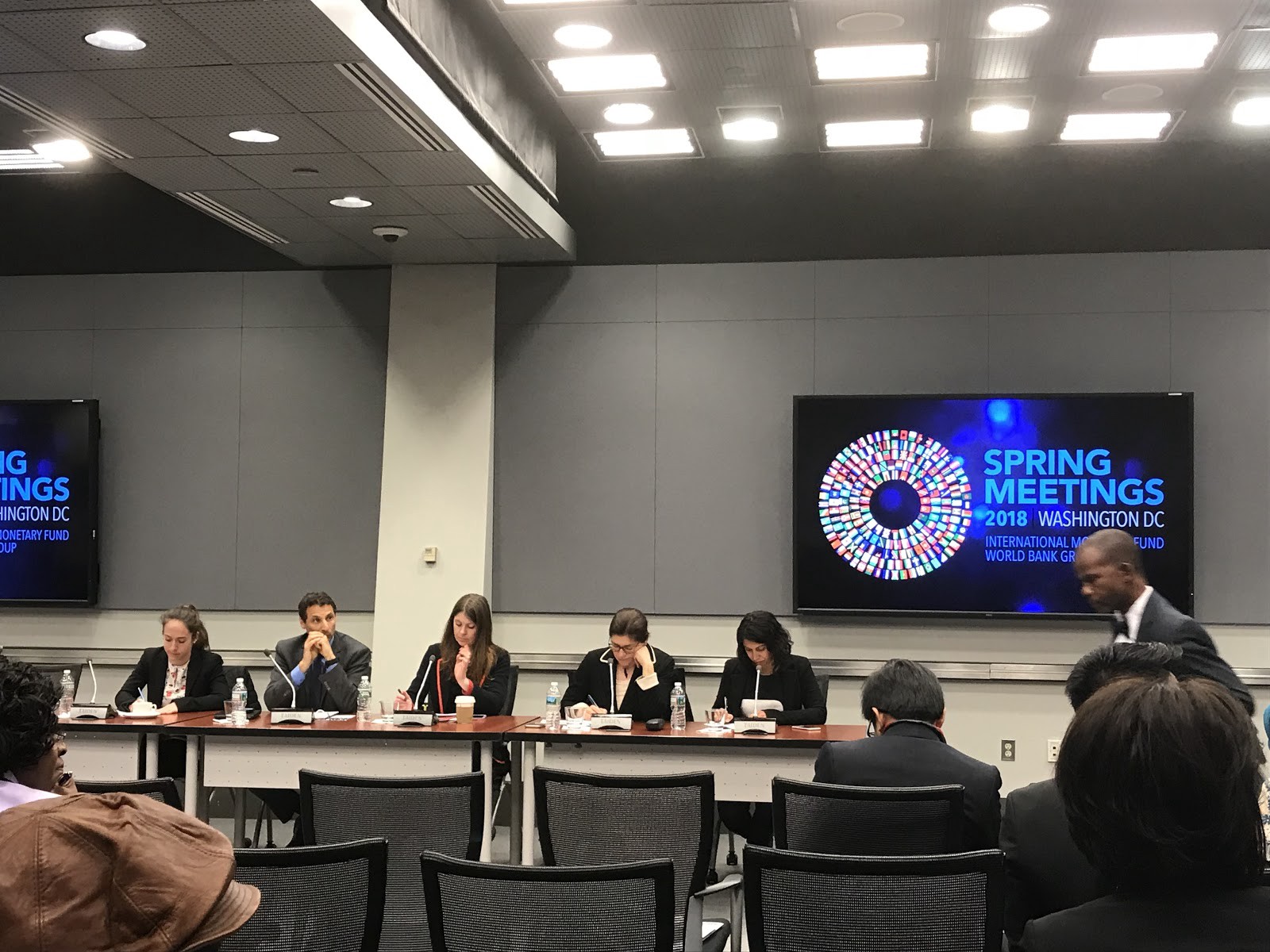Written by Bianca Santos, a SustainUS World Bank delegate and a graduate of the Virginia Institute of Marine Science, College of William and Mary.
The 2018 World Bank Spring Meetings have officially begun! The Civil Society Forum kicked off with orientation sessions Tuesday morning, including a session relevant to the goals and priorities of this year’s SustainUS delegation: World Bank Accountability Mechanisms.
Why do we care about accountability?
The World Bank aims to help the world’s poorest countries, but their interventions often have negative consequences as well. Transparency and accountability are imperative to ensure the Bank’s projects comply with social and environmental safeguards; making it all the more important that the appropriate mechanisms are in place to identify and mediate non-compliance.
Representatives from five World Bank compliance boards provided background on their respective groups before opening the floor to members of the of Civil Society Organizations (CSOs); and panelists were challenged with tough, thought-provoking questions.Here is a recap and outline of the accountability groups designed to keep the Bank in check:
The GRS is the World Bank’s corporate compliance mechanism, mandated to provide accessibility for individuals to interact directly with bank managers. Recently founded, the group functions independently and reports directly to the board.
The Inspection Panel provides an opportunity for affected people to file complaints when World Bank projects cause harm to the community or environment to ensure compliance. As with the GRS, it is an independent group that reports only to the board of executive directions.
3. Compliance Advisor Ombudsman (CAO)
Unlike the GRS and Inspection Panel, CAO deal specifically with private sector projects. This group reports directly to the president of the World Bank and have managed 51 cases across 28 countries. In the 2017 fiscal year, 28% of issues were infrastructure-related and 25% involved the oil, gas, mining and chemicals sector.
4. Integrity Vice Presidency (INT)
The INT is largely focused on the project-side and issues surrounding bank staff, seeking to support integrity in Bank operations by investigating fraud and corruption allegation, seeking sanctions against entities who engage in misconduct, preventing misuse of funds, and strengthening national and global anti-corruption efforts
5. Independent Evaluation Group (IEG)
The IEG examines the ways in which the lives of people are impacted due to World Bank activities, such as the effectiveness of intervention and the process of implementation, while also working on capacity building.
The umbrella goal of these five groups are the same — ensure accountability of the World Bank and associated projects. However, as evidenced by the intense Q&A following these brief overviews, the CSOs present are not convinced the World Bank is doing enough.
Confidentiality Concerns
A key concern voiced during this session was confidentiality of reported compliance issues, which is of particular concern for members from lesser developed countries, where individuals may face retaliation for voicing their concerns. The panel acknowledged the immense challenge that exists in this realm, and one panelist shared that their procedures include a risk assessment to determine the risk of addressing complaint.
This is great in theory, but is this realistic in practice? Is it enough protection to encourage members of the public to come forward? Food for thought.
Compliance Board Outreach
Another overarching theme of the Q&A was the visibility of these compliance boards to member countries and project teams. A CSO representative testified to this, sharing her experience working in Nigeria for years without mention of any of the compliance boards. A suggestion arose of increasing promotion of these panels at the local level.
Concluding Thoughts
CSO members from around the globe presented critical questions to the panel of representatives from World Bank compliance boards. Despite attempting to answer the questions comprehensively, many of the panelist responses proved to be unsatisfactory. It seems these World Bank accountability mechanisms are not addressing the specific needs and limitations, especially those of developing nations. Although we will give credit to the World Bank where credit is due, there is clearly a long way to go.


